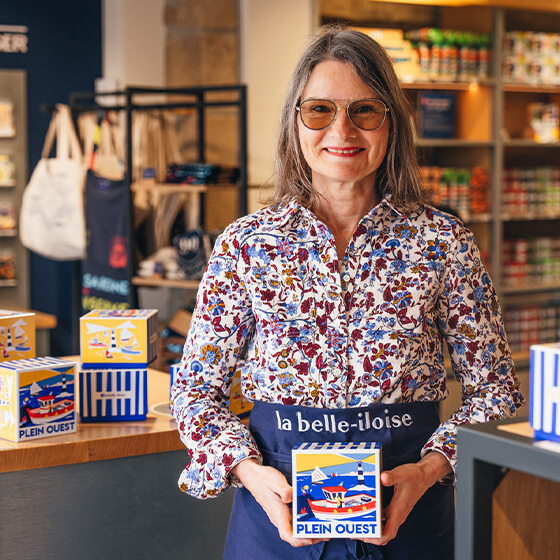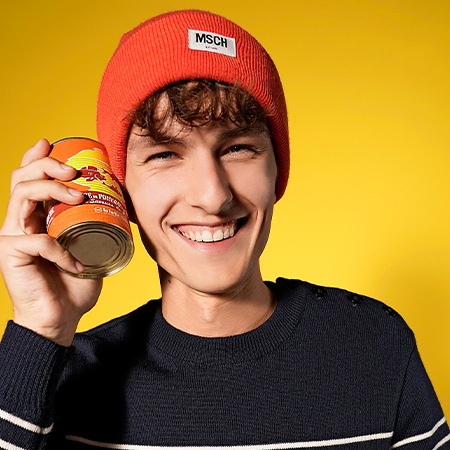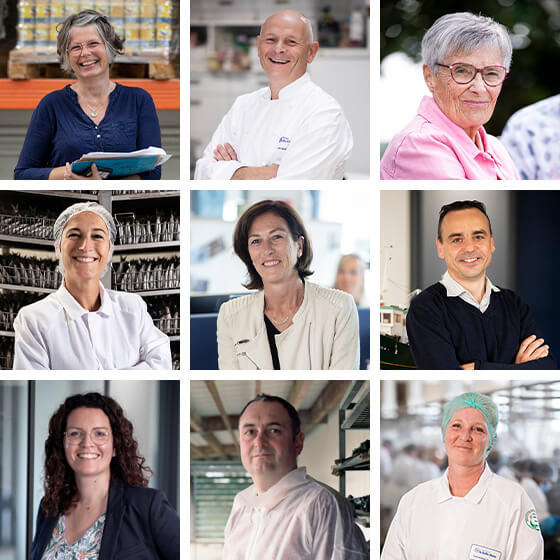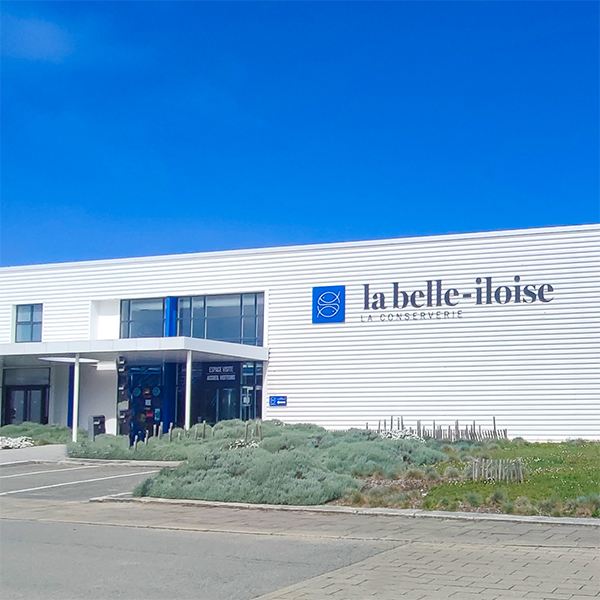Report on Mussels in Pénestin!
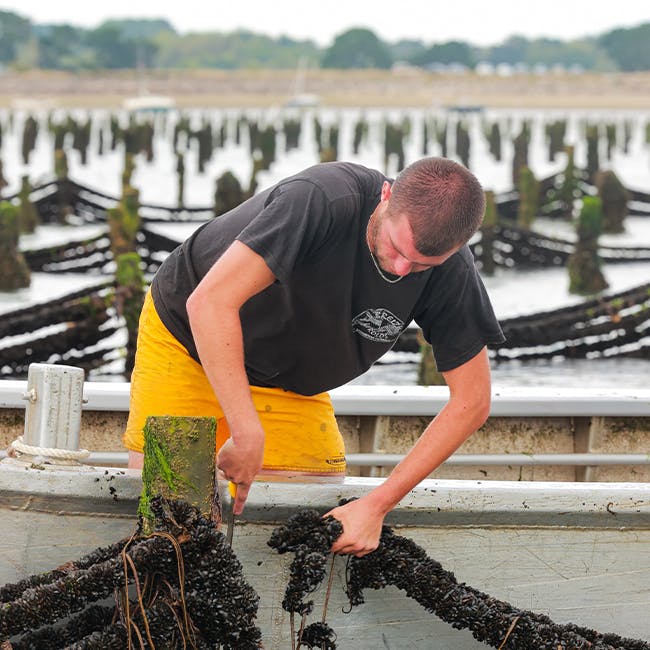
To celebrate the bouchot mussel harvest season and the launch of its two new recipes:
Breton Mussel Velouté and Mussels cream with Curry, La Belle-Iloise takes you to Pénestin, a stone's throw from Quiberon, to learn all about mussel farming from Gilles Foucher, a mussel farmer. He takes us out on the water to discover his mussel beds in the splendid Pont-Mahé Bay, an exceptional site classified as a "Natura 2000" area!
Then we meet our local partner Axel Brière, founder of Mussella, an association of committed Breton producers who revalue bouchot mussels considered too small, thereby saving nearly a third of the production of these exceptional mussels!
A photo report by Joséphine Lefebvre...
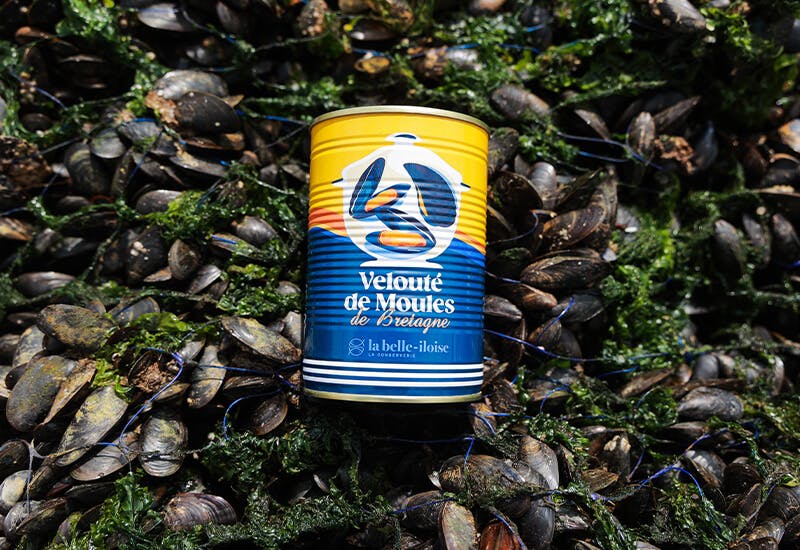
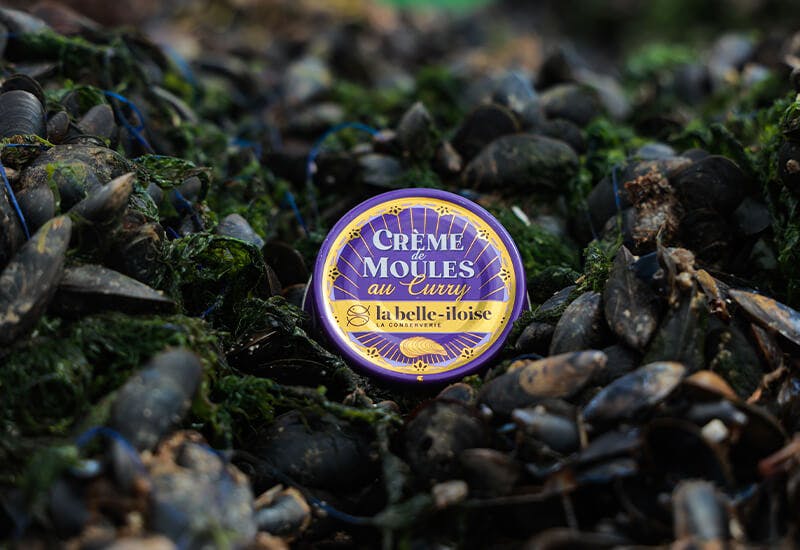
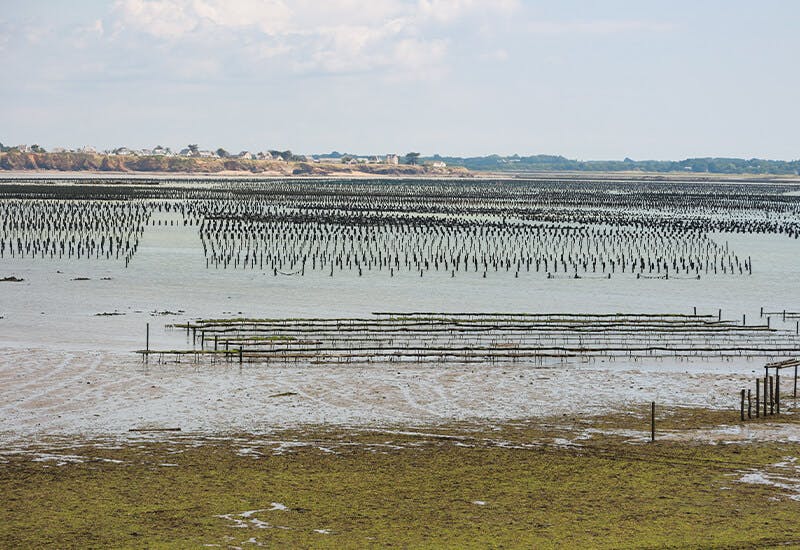
Patrick Walton and the birth of bouchot mussels
Practised only in France, mussel farming on bouchot stakes is a historic, artisanal cultivation technique that is said to have appeared in 1235 off the coast of La Rochelle...
Legend has it that this invention is attributed to Patrick Walton, an Irish sailor who got lost at sea and was shipwrecked on the Charente coast. Stranded and starving, he stuck wooden stakes into the mud to stretch out nets to catch seabirds for food. Instead, to his great surprise, he found that his stakes were covered with mussels that had naturally attached themselves to them!
Revealing unexpected potential, this chance discovery led Walton to increase the number of stakes on the foreshore, giving rise to the first mussel farms and the traditional method of cultivation on stakes, now emblematic of French mussel farming and recognised at European level by the "Traditional Speciality Guaranteed" label!
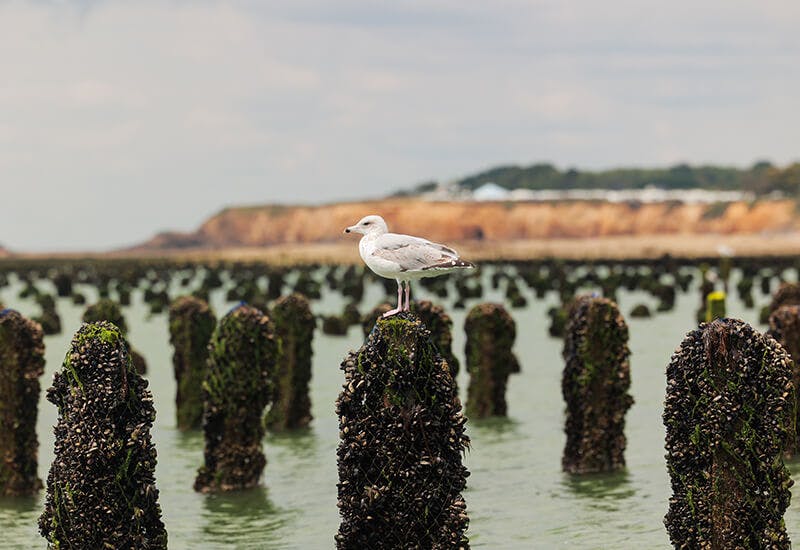
Simple and ingenious, mussel farming on bouchot stakes promotes growth thanks to the tides and their natural environment on the foreshore in sheltered areas: waters rocked by gentle, salty currents, rich in phytoplankton and nutrients. The alternating periods of being above and below water give them their delicate salty taste and high-quality flesh, which are the reasons for their renown!
Pont Mahé Bay: meeting with Gilles Foucher
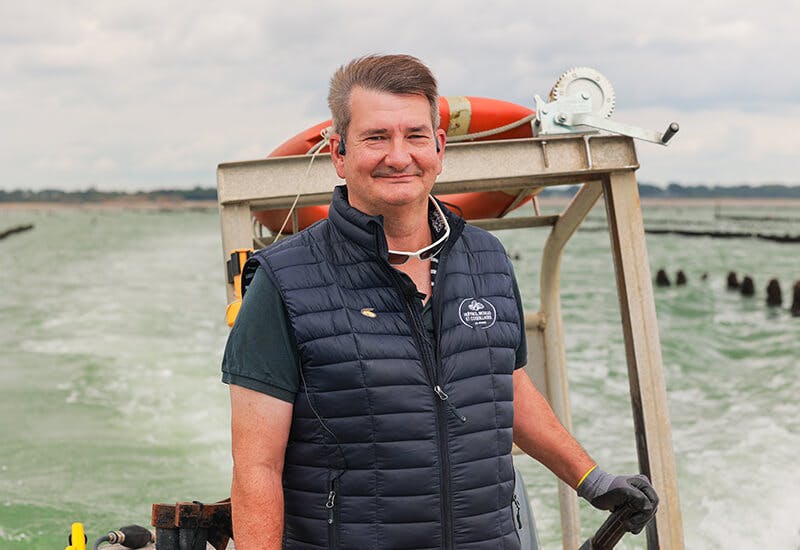
Gilles Foucher, a mussel farmer in Pénestin for some twenty years, points out that Pénestin mussels have also been listed as part of France's Intangible Cultural Heritage (PCI) since 2020...
His motto: « Pénestin mussels, mussels that are good for you! ».
« With 350,000 stakes and a production of approximately 3,500 tonnes of mussels per year for 32 mussel farmers, Pénestin is a small basin, but there is an even smaller one in La Plaine-sur-Mer! ». His parks contain around 25,000 stakes and his production represents around 400 to 500 tonnes of mussels per year.
The stakes are 6 metres long and are driven 1/3 of the way into the sand or sediment, approximately 2 metres underground. The submerged part, protruding from the ground, allows the mussels to be exposed to the air twice a day at low tide, promoting their development and quality. The stakes are usually made of oak or chestnut wood, without bark, as it is the bark that allows the mussels to attach themselves using their filaments called byssus.
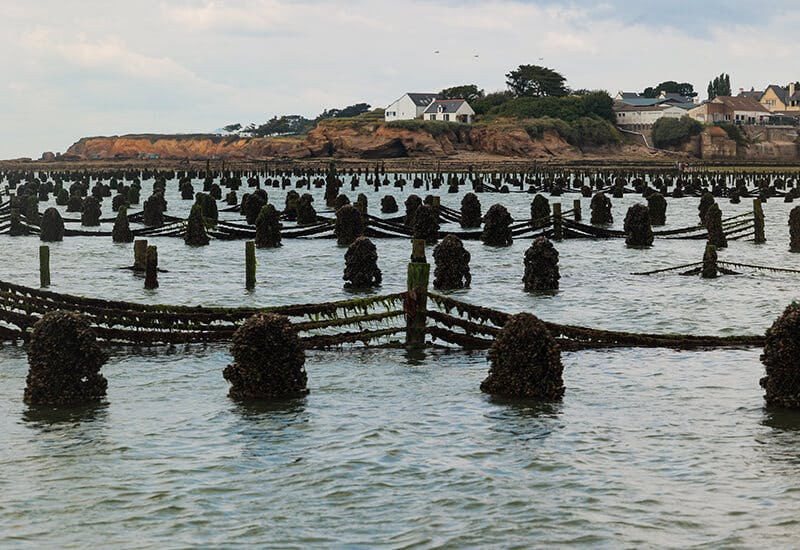
The bouchot mussel harvesting season begins in early July and ends in mid-October/early November, depending on the winds. Reaching maturity after 18 months, they are cultivated in three stages: collection, cultivation, and harvesting!
Step 1: Collecting spat
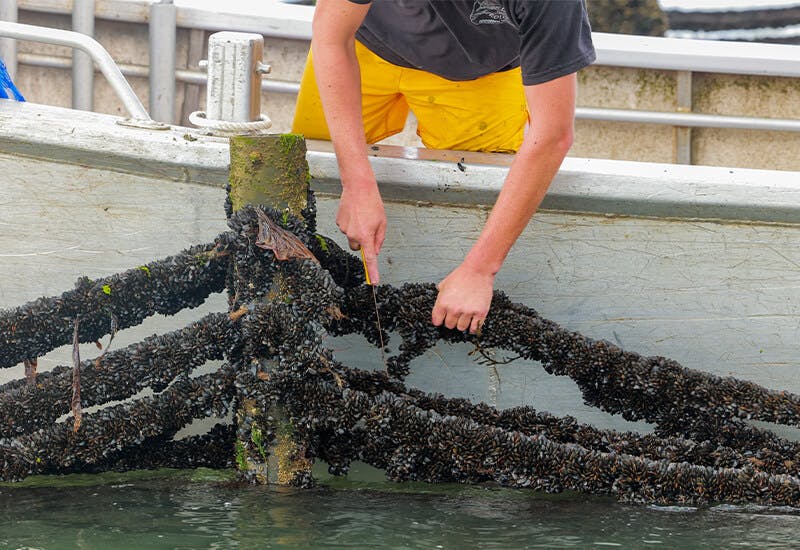
The mussels are first caught using natural coconut fibre ropes, which are installed in the water in February/March, just before the reproduction cycle.
Mussels reproduce by fertilisation in water: the female mussel lays millions of eggs while the male mussels release sex cells. When the eggs hatch, the larvae search for a surface to attach themselves to, where they gradually transform into young mussels, known as "spat”.
In spring, the spat naturally attach themselves to the filamentous ropes stretched out at sea at the end of winter, forming ropes of mussels, within a few weeks.
From July onwards, the ropes of oyster spat are cut into 2.5-metre lengths and then attached to the stakes, ready for stage 2 of the cultivation process!
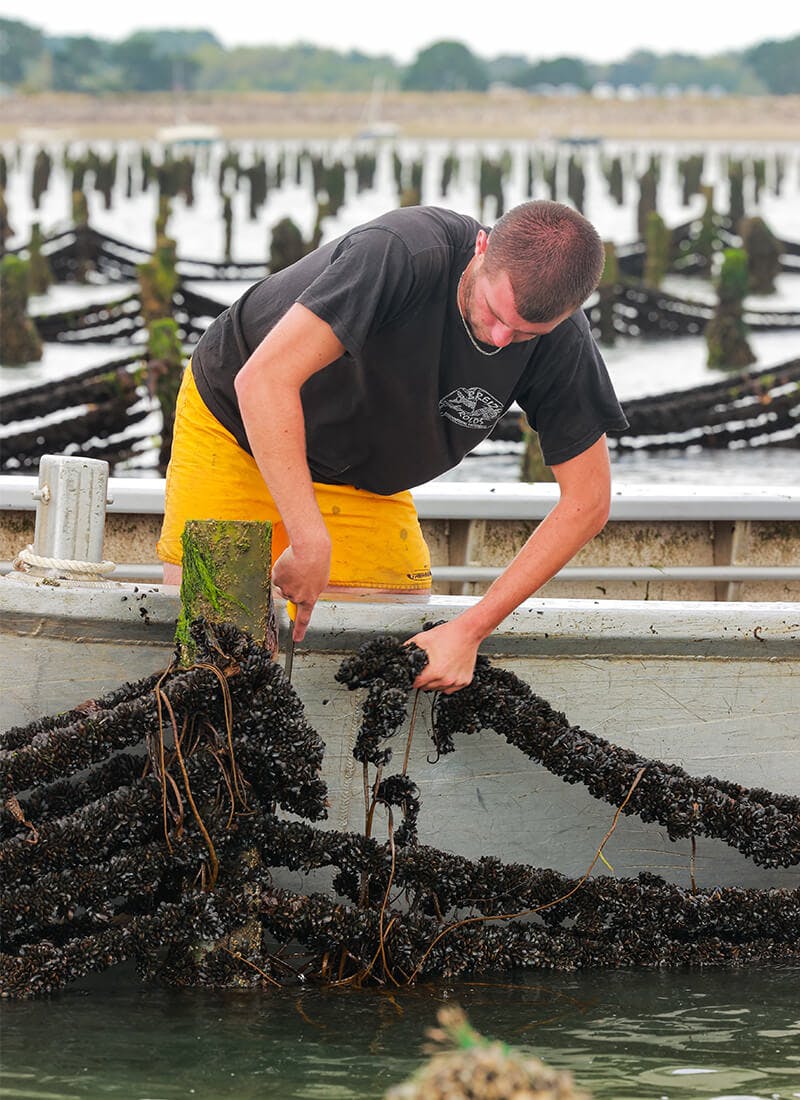
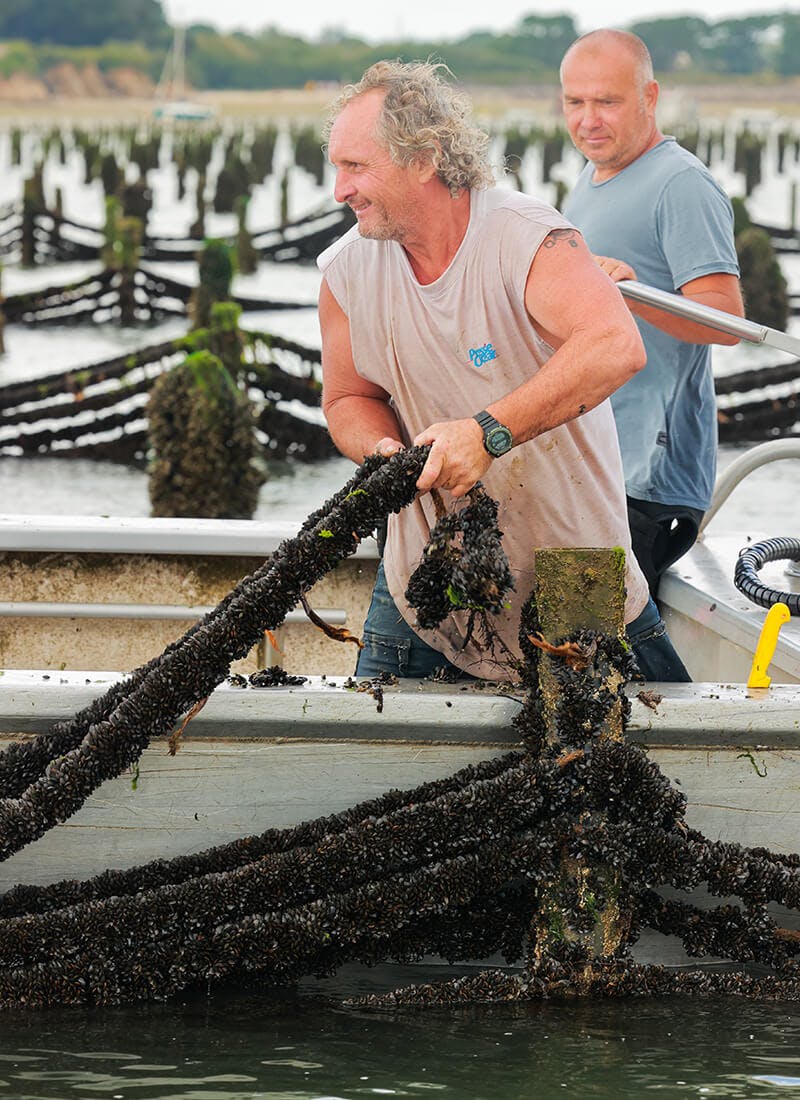
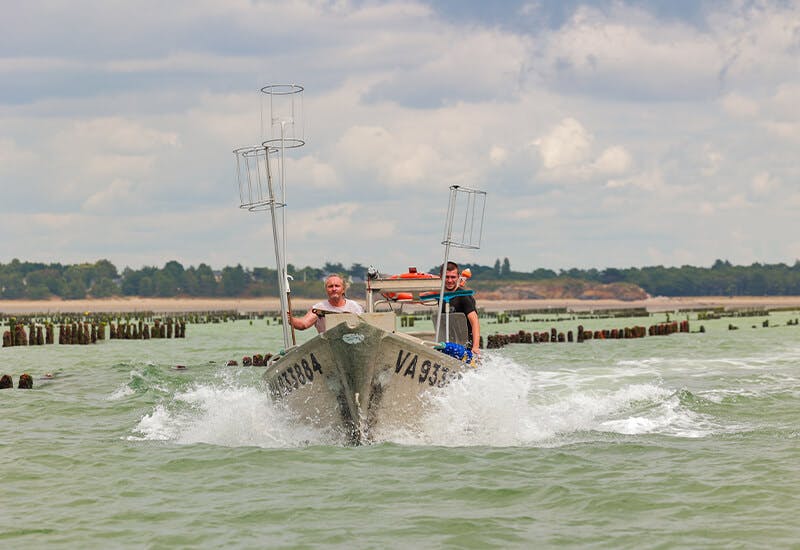
Step 2: filling and raising on stilts
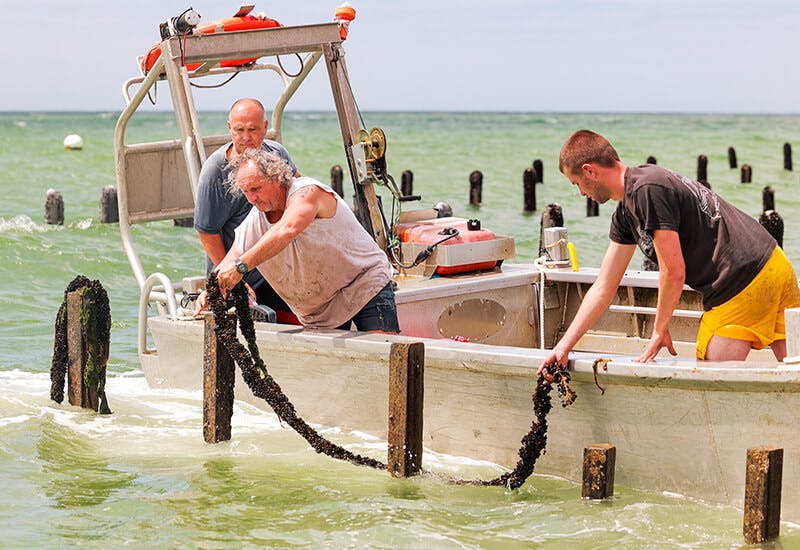
From July to September, the ropes of spat are wound around the stakes of the mussel beds, which have been stripped bare and cleaned of any rough edges.
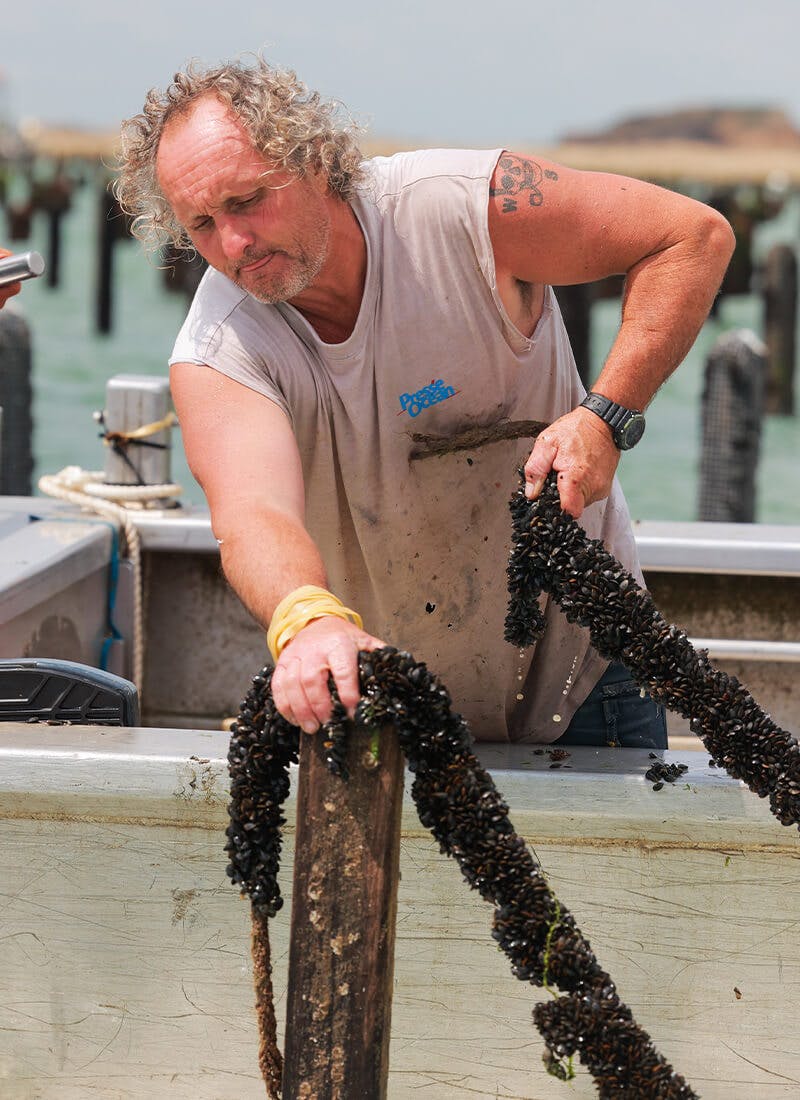
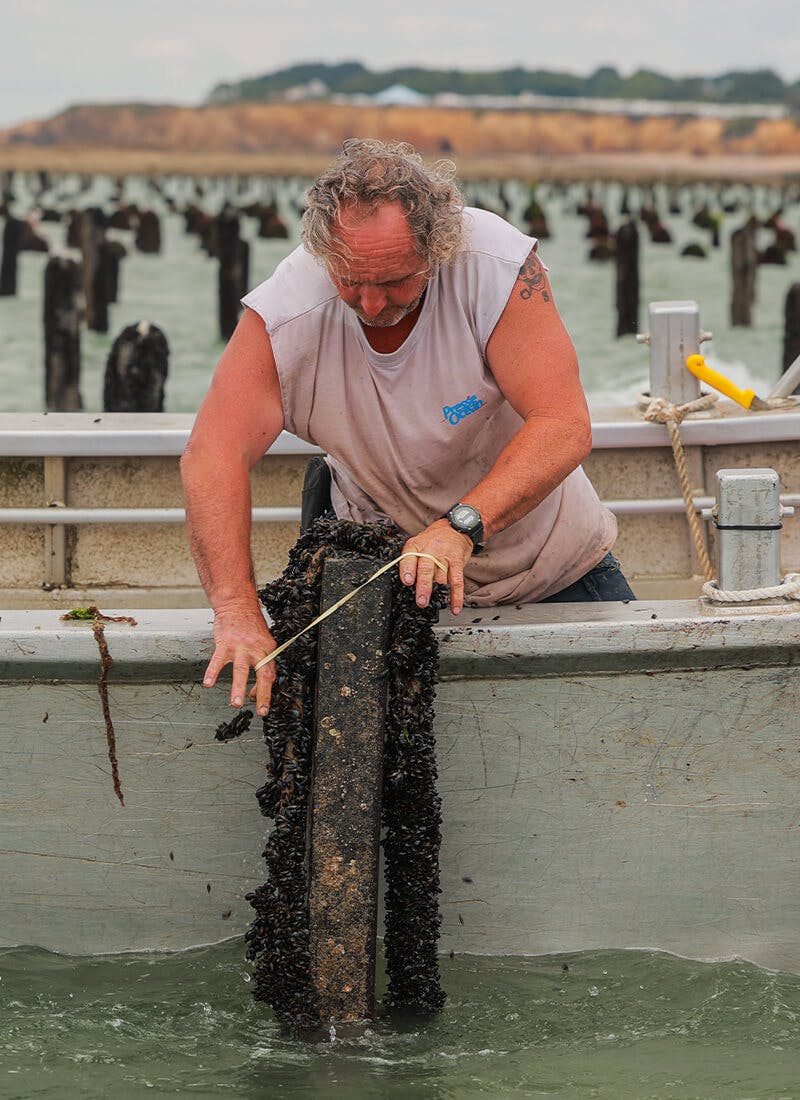
After simply securing them with elastic bands, mussel farmers protect the stakes with a retractable net. Over the months, as the mussels grow, they carefully monitor their development and cover the stakes with one or two additional nets to prevent them from coming loose and falling off.
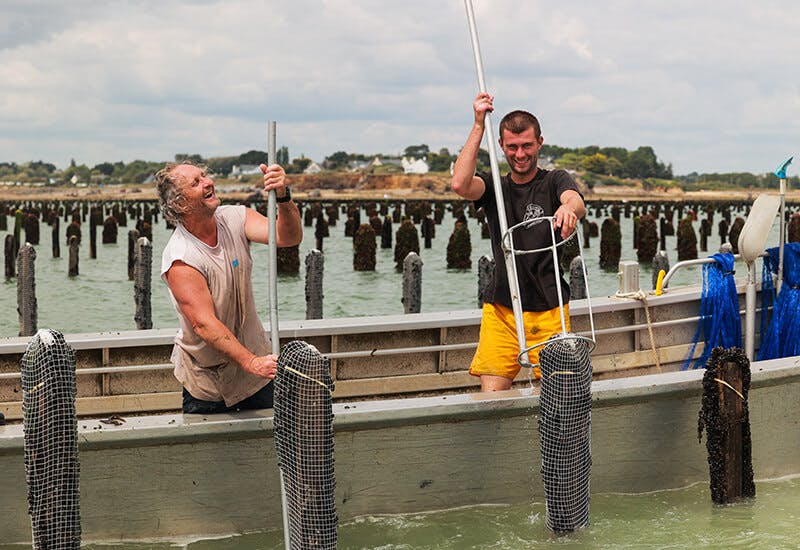
Step 3: Harvesting
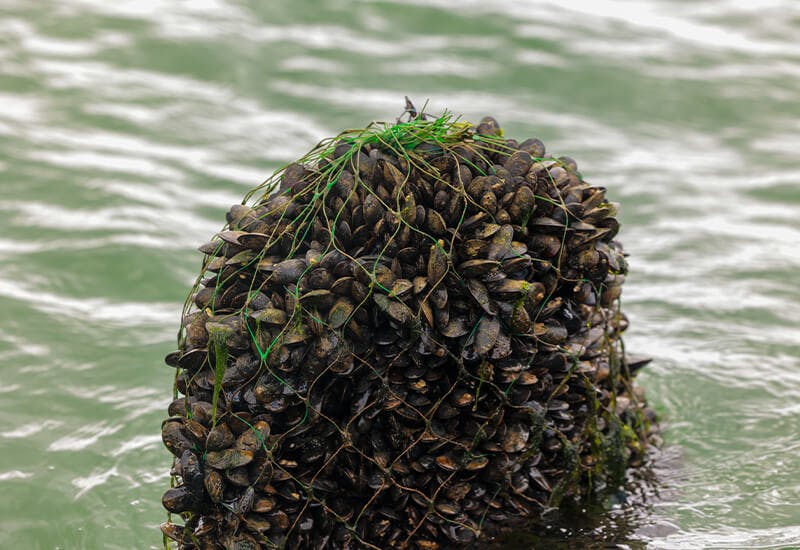
A year later, starting in the summer, comes the mussel "fishing" season, when mussels are harvested using a special device called a "fishing machine"! Using a crane, mussel farmers operate the fishing machine, which descends to the base of the stake and rises again, closing its two flaps on top to remove the mussels and then pour them into bins on board, on the deck of the boat.
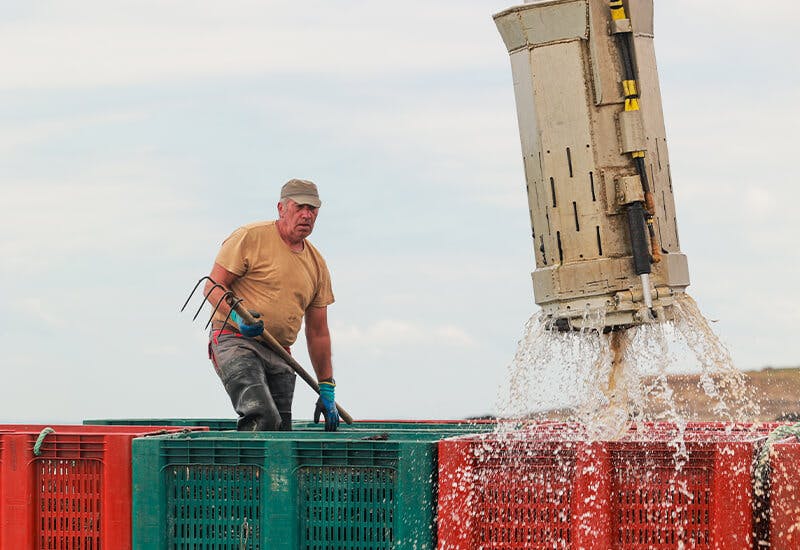
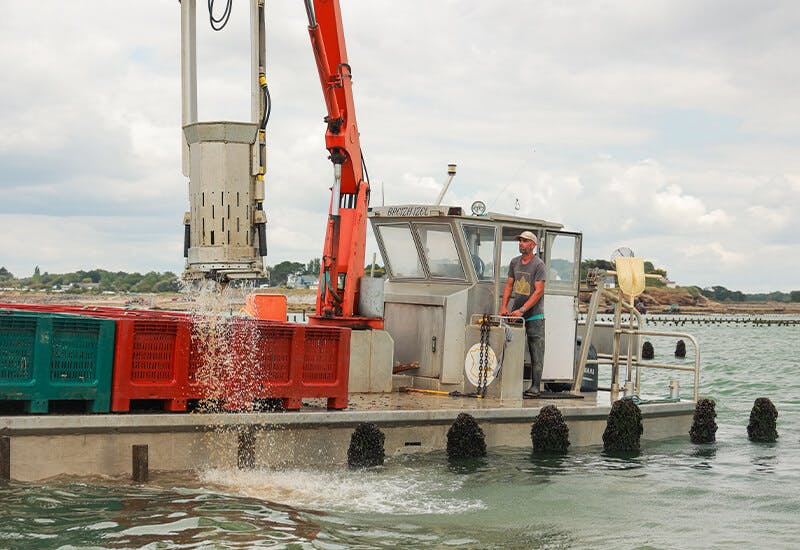
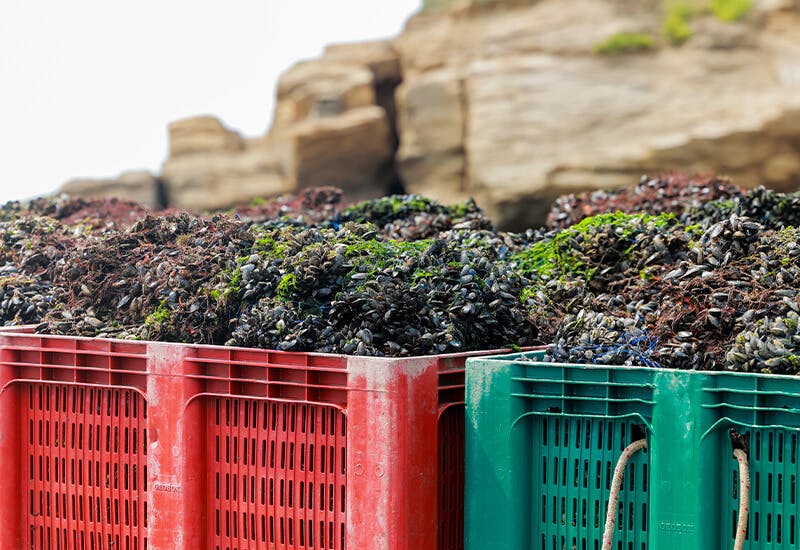
Once the mussels have been harvested, the team hurries back to the mussel farm to sort, wash and deliver them for sale.
Those measuring less than 12 mm thick are considered too small to qualify for the STG label and be sold in fishmongers or restaurants. Previously discarded at sea or left on the foreshore, and therefore wasted, since 2021 these oversized mussels have been sent to Mussella, 5 kilometres away, where they are repurposed by being shelled and packaged for a variety of innovative uses!
A big thank you to Gilles and his colleagues: Renan, Titouan, Michel and the two Arnauds for welcoming us with such kindness and helpfulness!
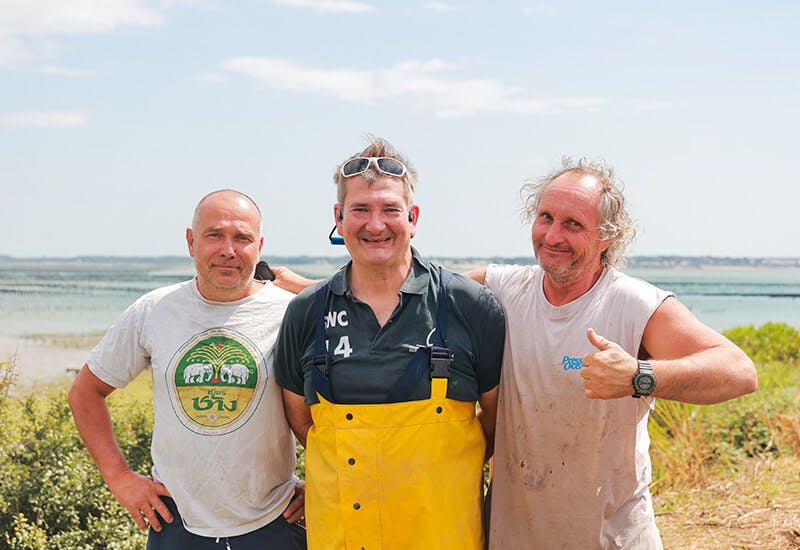
Mussella side: meeting with Axel Brière
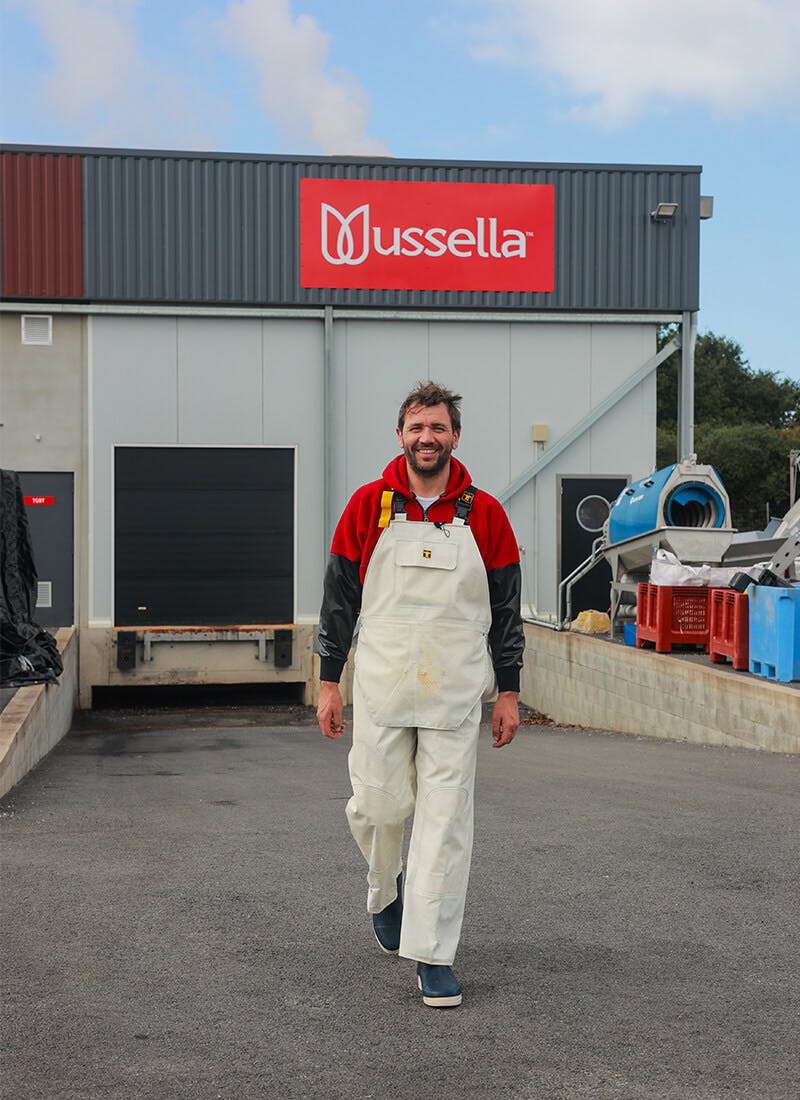
Founder and Director of Mussella, Axel Brière invited us to meet him in front of his mussel shelling factory, where mussels arrive from all over Brittany: Saint-Brieuc, La Plaine-sur-Mer, Mont-Saint-Michel, Cancale Bay and, of course, Pénestin! In peak season, he receives fresh mussels every day, within 24 hours of being harvested...
Mussel farmers for three generations at the famous Port de Tréhiguier in Pénestin, bouchot mussel farming is in the Brière family's genes. While his brother Jean-Sébastien took over the family business, Axel spent his twenties searching for a solution to add value to bouchot mussels that were too small to be sold.
« As the son and grandson of a mussel farmer, I studied economics, and during my master's degree, I became interested in the valorisation of negative externalities, i.e. the transformation of environmental problems into economic resources, and in particular the search for sustainable marine raw materials, which was the subject of my final thesis. The idea for Mussella emerged in 2012, but the current factory dates from 2021! »
With a production site that is unique in the world, « Mussella is not just French expertise, it is the best expertise in the world at every level, with cutting-edge technology! ». Thanks to his research and innovations, which have earned him two industrial patents, Axel recycles 100% of the mussels: the flesh, but also the shells, the juice and, more recently, "the remaining 2%, the pulp", which is transformed into mussel powder, highly sought after for the manufacture of food supplements!
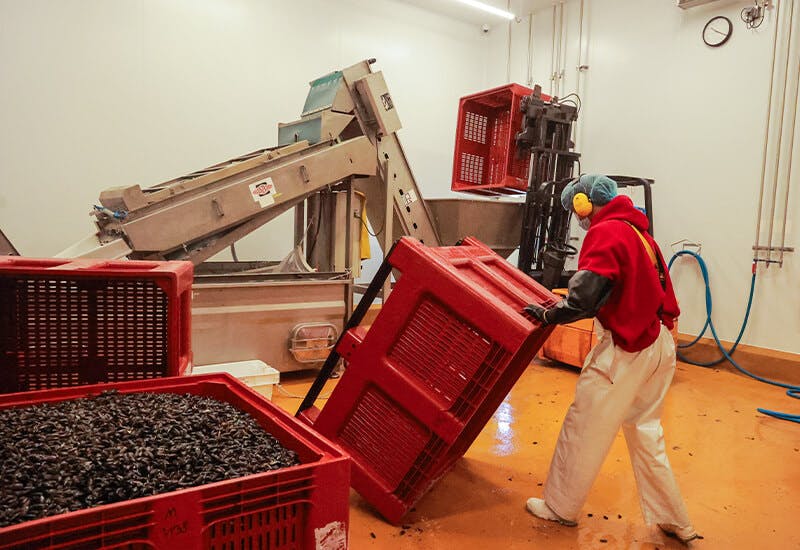
With two operators and 40 metres of production lines, the Axel factory is virtually self-sufficient: the first operator supplies the machines with moulds at the start of the line and the second packages the co-products at the end of the line. In between, technology takes care of everything! Axel is responsible for configuring and programming the line, and manages technical issues between his phone calls to mussel farmers and customers!
First step: the machine sets the pace for the entire line, then removes the byssus from the shells: the filament that the mussel produces to attach itself to rocks.
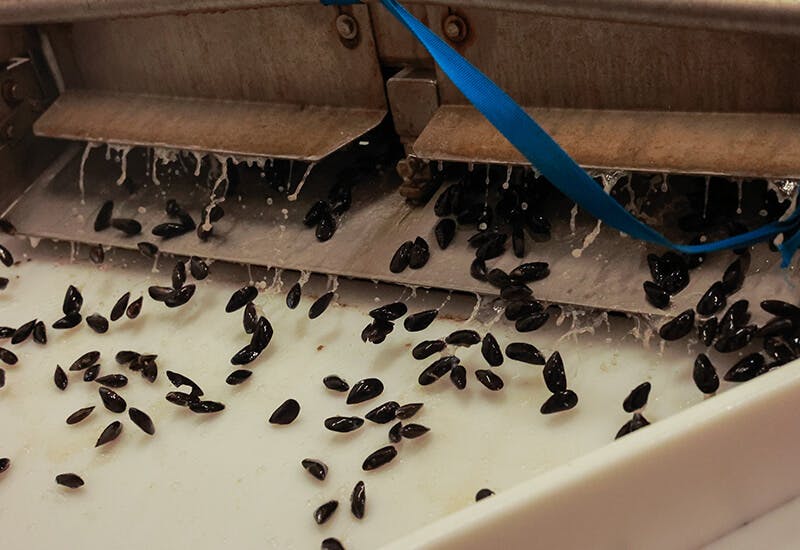
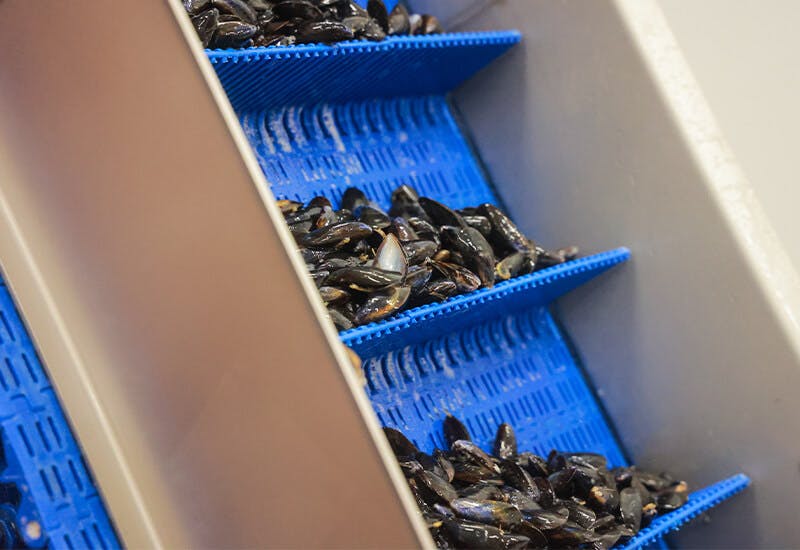
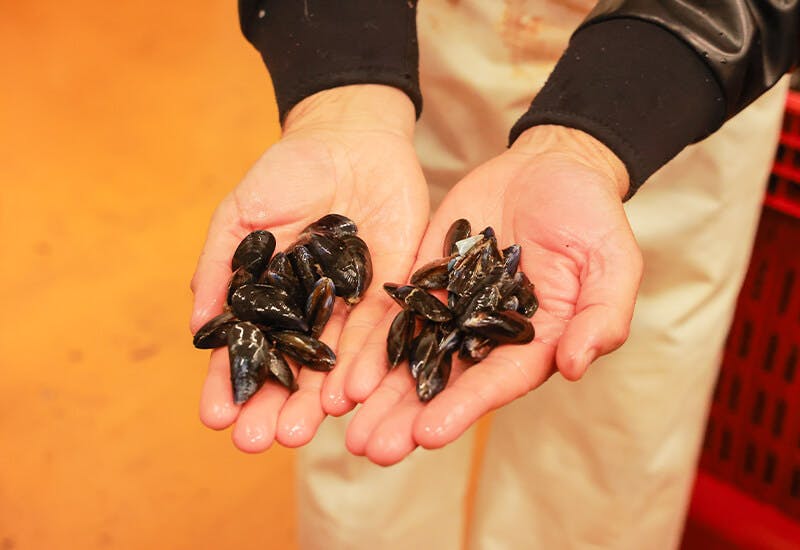
Second step, in the next room: the cooking area. The mussels are cooked in an autoclave, which subjects them to a sudden change in pressure: in about ten seconds, the shells open! They are then passed directly through a sieve to separate the shells from the flesh, leaving only the shelled mussels.
While the shells are sent to a crusher—a machine that crushes the shells so they can be sold to French biomaterial manufacturing companies—the mussels continue on their way to be deep-frozen in nitrogen at -180°C.
At the same time, Mussella also recovers the juice from the mussels using a water evaporation system called a concentrator, which concentrates the juice up to six times and pasteurises it. This highly aromatic juice is then packaged in 10-litre containers for sale to food and nutraceutical companies, which use it to make food supplements after molecular extraction.
Once frozen, the shelled mussels are ready to be bagged and transferred to the cold room. Sold to supermarkets, restaurants and food companies, these shelled mussels are a unique raw material in Europe, as most of the global market is dominated by mussels from Chile.
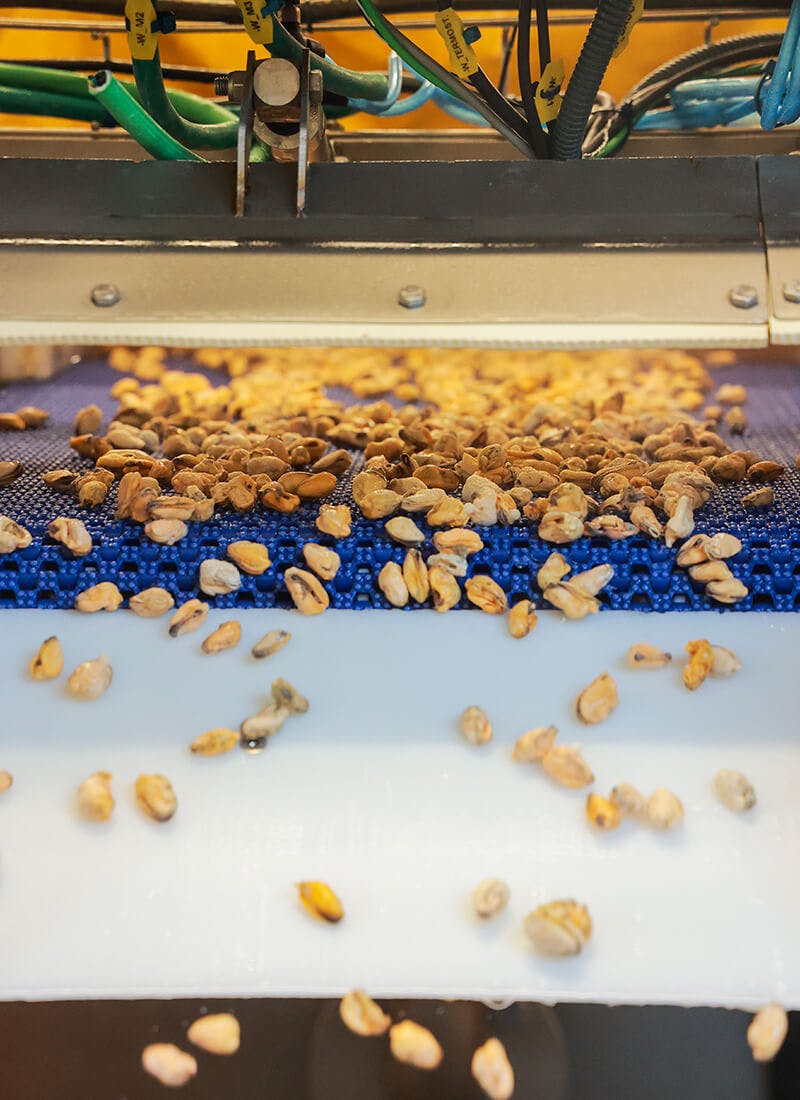
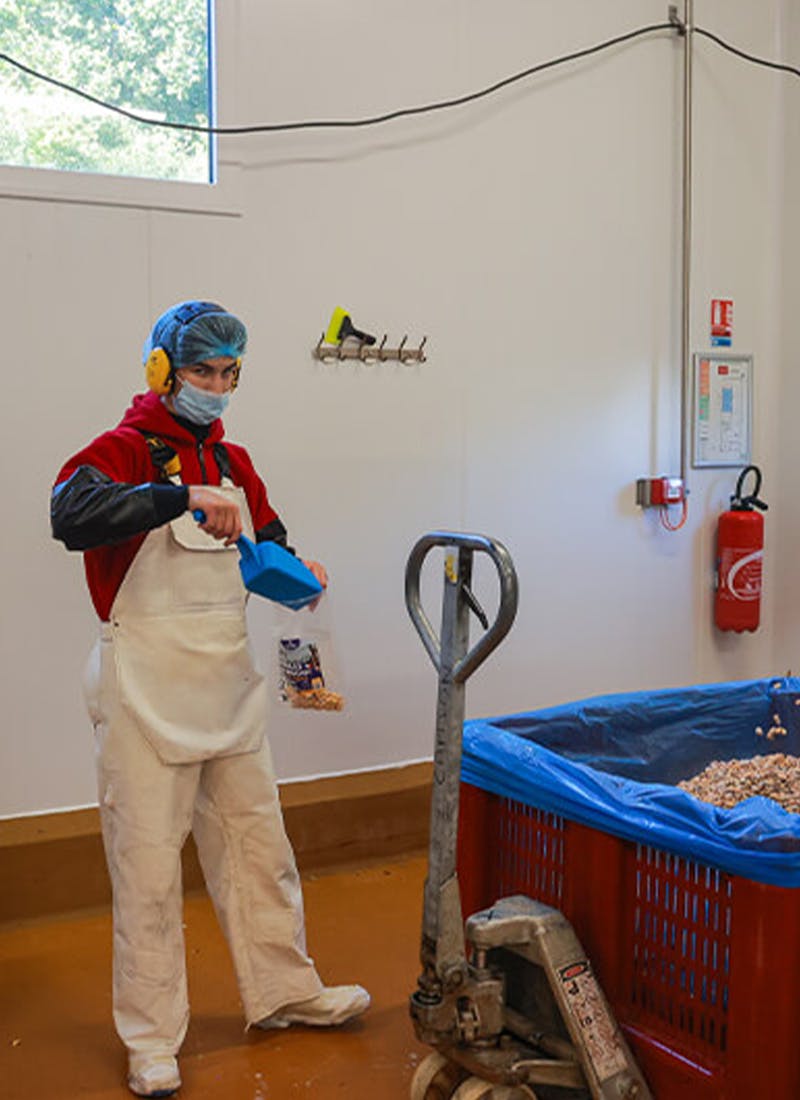
In 2024, Mussella processed around 500 tonnes of bouchot mussels, or around one third of production, to transform them into co-products.
Axel explains: « Mussella's true value lies not only in its manufacturing process, but also in our ability to bring everyone together, suppliers and customers alike, and to understand what a company as demanding as La Belle-Iloise, for example, wants... Because it is extremely demanding compared to other customers, on absolutely every criterion, and for us that's a great opportunity because we've learned a lot from it! ».
Now partnered with 35 mussel farmers in Brittany, Axel explains: « I spent nearly 10 years developing the project, almost giving up several times, and Mussella owes its success to its partner producers and influential encounters such as Christophe Lachenays and François Sehier from La Belle-Iloise*, who believed in the project and supported it through thick and thin. They understood the need to find raw materials that would ensure the sustainability of the cannery, both from an environmental point of view and in terms of access to raw materials and diversification of resources. ».
*respectively Purchasing Manager and Head Chef at La Belle-Iloise
It was thanks to the cannery that Axel Brière launched his own mussel spread, which is made here in Quiberon: Patamoule, sold under his brand name "Paysans de la mer" in classic or spicy versions!
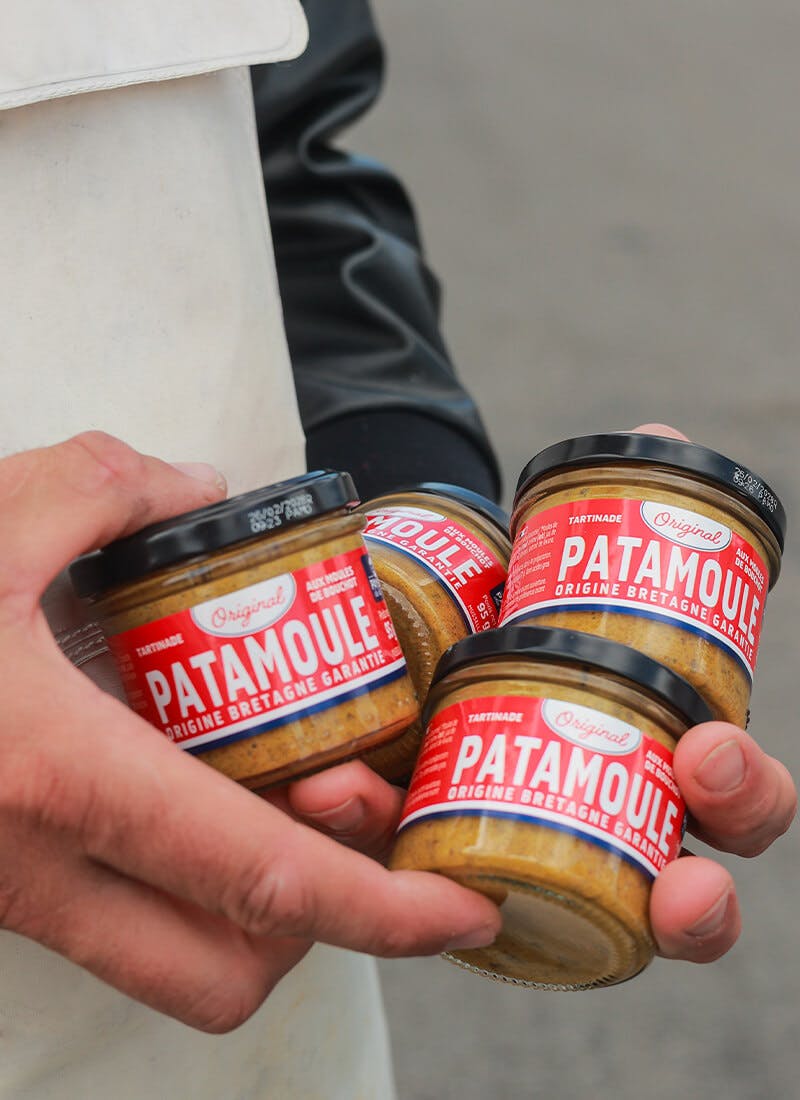
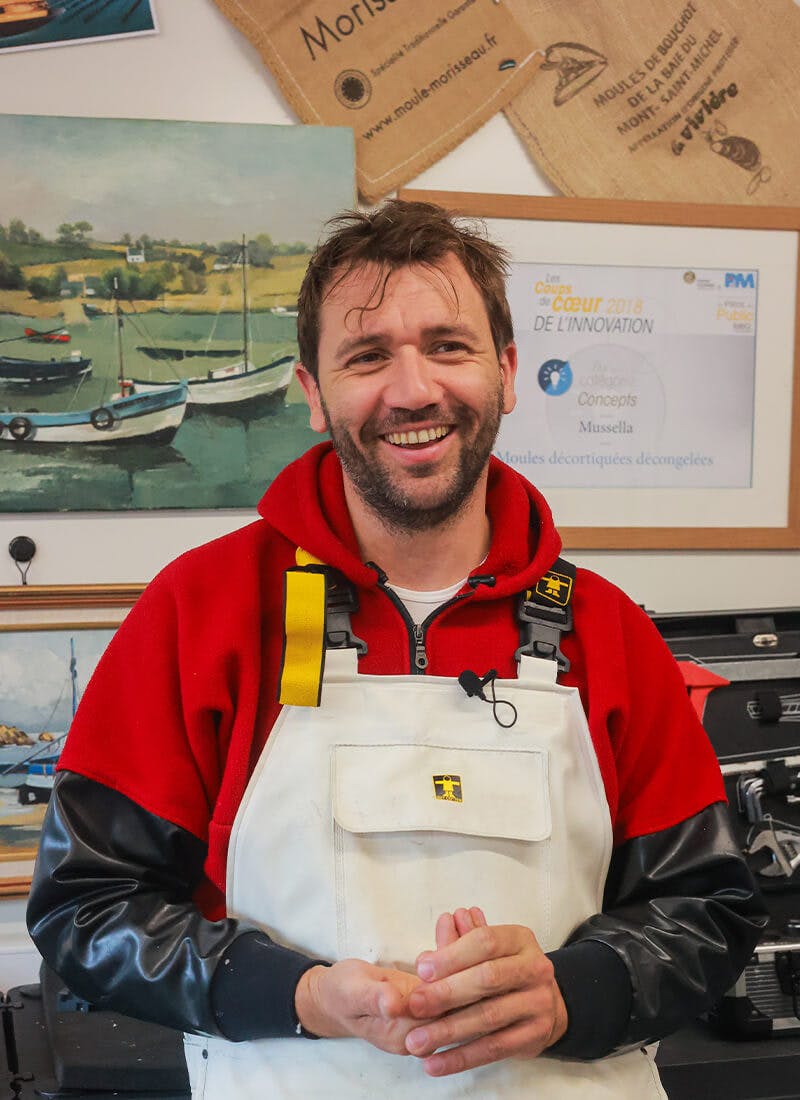
We would like to extend our warmest thanks to Axel for his wonderful welcome and wish him continued success in his innovative endeavours and efforts to enhance the value of the company.
Find out more about Mussella's approach on its website: https://www.mussella.fr/
Photo credits : Joséphine Lefebvre https://josephine-lefebvre.fr/

